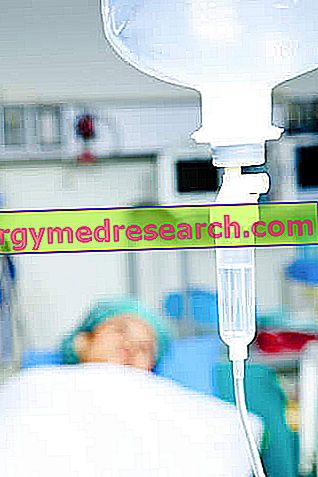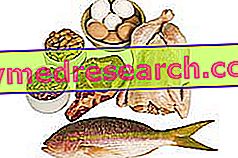Introduction
Coffee and caffeine
Coffee means the drink obtained by infusion of the powder of roasted seeds produced by the homonymous plant ( Coffea botanical genus).
Coffee is notoriously a drink rich in caffeine (or teina); this substance, chemically defined 1, 3, 7-trimethylxanthine, is a natural alkaloid with nerve effect, that is stimulating on the central nervous system.
Caffeine also has many other effects on the body, some desirable (for example for sportsmen), others unwanted (as in pregnancy).

Pregnancy
Pregnancy is a special physiological state, or a normal condition of altered needs that the woman requires to complete the pregnancy. These needs correspond to greater health risks which, in this case, are more interesting for the pregnant woman.
First of all is the nutritional need; during pregnancy it is necessary to take all the nutrients necessary for the development of the child and the maintenance of the mother, and the prohibition to introduce any harmful substance is in force.
Since the excess of caffeine is considered potentially harmful, it is imperative that the pregnant woman consciously take the foods and drinks that contain it, for example coffee.
risks
The relationship between coffee and pregnancy is quite conflicting; there are those who admit it with strict moderation and those who suggest abolishing it, recalling some studies that warn of the dangers of coffee, not only in pregnancy, but also in everyday life.
How much caffeine can I take during pregnancy?
The maximum recommendable dose of coffee is rather difficult to establish. For adults and healthy people, not pregnant, according to certain population studies, it could be recommended to stay around 4 mg of caffeine per kg of body weight (only 1 mg / kg for subjects under 18 years); for example, a 65 kg woman could introduce up to 260 mg of caffeine, or 2-3 cups of espresso.
Not surprisingly, according to many international authorities, the maximum allowable caffeine dose during pregnancy is 200-300 mg a day; as specified, this limit is equaled by drinking two or three cups of espresso coffee, but can easily be exceeded if the diet also includes the consumption of a can of coca-cola or energy drink like the red bull.
Is coffee dangerous in pregnancy?
Unfortunately it is not easy to express a definitive and irrevocable sentence on the subject; the scientific literature is indeed very rich in studies on the relationship between coffee and pregnancy, often with conflicting results.
For some, daily intake of up to 400 mg of caffeine would be acceptable, while for others, even a modest intake could increase the risk of miscarriage and low birth weight. So to be absolutely safe, it is preferable to reduce your daily caffeine intake by limiting yourself to just one cup of coffee (100 mg of caffeine) or even better eliminating it altogether.
Coffee and risk of abortion
For most of the doctors, however, a large population study is clear, which in 2008 showed that consumption ≥ 200 mg of caffeine per day, during pregnancy, could be associated with a risk of miscarriage almost double that of pregnant women who do not take it at all.
Although there is no absolute certainty that this risk is actually associated with the high caffeine intake itself, rather than the presence of concurrent risk factors, more common in women who exceed 200 mg of caffeine per day (stress, smoking, alcohol, bad diet, etc.), prudence is a must.
Not just coffee
Other foods and beverages that contain caffeine
Average caffeine content of various foods | |
Espresso | 60-80 mg |
Decaffeinated coffee | 2-5 mg |
Black tea (240 ml) | 40-120 mg |
Canned tea (about 330 ml) | 15-30 mg |
Coke, Pepsi (a can) | 35 -40 mg |
Red Bull (one can, 250 ml) | 80 mg |
Milk chocolate (43 g) | 9 mg |
Extra-dark chocolate (41 mg) | 31 mg |
Decaffeinated
Is decaffeinated coffee healthier?
To reduce or eliminate the caffeine of the diet it can be very useful to prefer decaffeinated coffee to the normal one.
Decaffeinated chemical solvents and pregnancy
However, excessive consumption of decaffeinated coffee during pregnancy is not recommended by some because of the risk of taking excessive amounts of the chemical solvents used to extract caffeine. Although, in reality, these solvents are mostly removed during the roasting process.
Not even the various substances with proven carcinogenic power in rodents seem to cause particular concern; in fact, their concentrations in coffee, both traditional and decaffeinated, are rather small and therefore considered safe or at least tolerable even in pregnancy.



